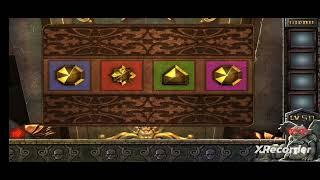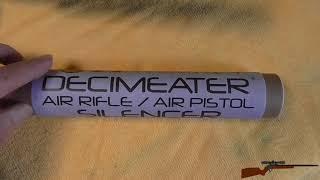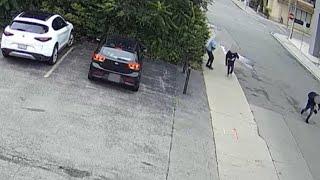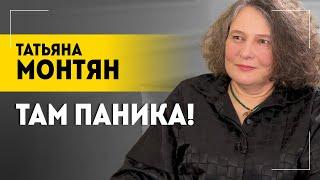![Смотреть Woody Woodpecker Cartoon Theme (1962) - Darrell Calker arranged Music Cue Open/End [in DYNA-STEREO] Woody Woodpecker Cartoon Theme (1962) - Darrell Calker arranged Music Cue Open/End [in DYNA-STEREO]](https://smotrel.cc/img/full/UTUyRzZfbGU4dXc.jpg)
Woody Woodpecker Cartoon Theme (1962) - Darrell Calker arranged Music Cue Open/End [in DYNA-STEREO]
Darrell Calker (February 18, 1905 – February 20, 1964) was an American composer and arranger celebrated for his work in film scores. He contributed significantly to various films and television shows, including renowned classics like "The Twilight Zone." However, he is perhaps best remembered as the music director for Walter Lantz Productions' animated cartoons, where his distinctive swing and big band arrangements left an indelible mark.
In the mid-1930s, Calker worked as a session musician in Los Angeles and composed songs like "Strings Full of Swing" and "Dixieland Strut." He even formed his own band, which gained recognition through radio appearances in the early 1940s.
Calker was an uncredited composer (along with Michael Michelet and Clarence Wheeler) on Shirley Temple's teen star vehicle, Miss Annie Rooney (1942). His first cartoon was the Andy Panda short Mouse Trappers (Released in January 1941) and Calker composed the scores for all Walter Lantz Productions' cartoons until Drooler's Delight (1949) when the studio temporarily closed. Included were the Swing Symphony cartoons featuring musicians like Nat King Cole, Meade Lux Lewis, Jack Teagarden, and Bob Zurke, whom Calker knew and convinced to work on the cartoons. His classical music scores for The Poet and Peasant (1946) and Musical Moments from Chopin (1947) earned the studio Academy Award nominations for Best Musical Short and a Musical Courier Citation in 1947 for best cartoon score. Calker also scored animated shorts for Screen Gems (the cartoon division of Columbia Pictures) from 1946 until it closed in 1947.
Feature films
Calker's first feature film was the independently made Dangerous Millions (1946). The musical supervisor was David Chudnow, who later took music that had been composed for films he worked on and released it as television stock music in the Mutel Library. He also composed, with Del Porter, the Reddy Polka in 1945, used in industrial films about Reddy Kilowatt, the cartoon spokesman for electrical power.
Calker spent the 1950s working on B movies for Eagle-Lion Films, such as Forbidden Jungle (1950), Allied Artists, such as From Hell It Came (1957) and American International Pictures, including Voodoo Woman (1957) and Beyond the Time Barrier (1960). He also composed the scores for Rolling Home (1946), Albuquerque (1948), El Paso, and Superman and the Mole Men (1951), which functioned as a pilot for the 1950s television series.
He returned to the Lantz studio in 1961 and scored twelve cartoons before his death, aged 59, in Los Angeles, California.
He composed the themes to the Beary Family, Willoughby (both with Judy Zahler) and Homer Pigeon (with Porter) cartoons. His last picture was Rah Rah Ruckus (1964).
Calker's career in Hollywood also included orchestration work for Victor Young. He also composed scores for ballet productions, including works for the Ballets Russes de Monte Carlo and Sadlers Wells Royal Ballet. Among his notable compositions were suites for orchestra, such as "Golden Land" and "Penguin Island."
This particular theme was identified as part of a recording session described in the Darrell Calker papers in a University library who is in possession of the music score and orchestrations. Although the cartoon that followed was scored by Clarence Wheeler, this particular 'Open' and 'Close' cue has distinctive Calker arrangements - with double-reed (bassoon) and flute and a swinging' bass and hard-hitting drummer. This cue would also be heard on episodes of Lantz' syndicated TV series, "The Woody Woodpecker Show" (alternating with a very familiar Walter Greene arrangement).
The endpage music is from a late-'40's Calker score.
In the mid-1930s, Calker worked as a session musician in Los Angeles and composed songs like "Strings Full of Swing" and "Dixieland Strut." He even formed his own band, which gained recognition through radio appearances in the early 1940s.
Calker was an uncredited composer (along with Michael Michelet and Clarence Wheeler) on Shirley Temple's teen star vehicle, Miss Annie Rooney (1942). His first cartoon was the Andy Panda short Mouse Trappers (Released in January 1941) and Calker composed the scores for all Walter Lantz Productions' cartoons until Drooler's Delight (1949) when the studio temporarily closed. Included were the Swing Symphony cartoons featuring musicians like Nat King Cole, Meade Lux Lewis, Jack Teagarden, and Bob Zurke, whom Calker knew and convinced to work on the cartoons. His classical music scores for The Poet and Peasant (1946) and Musical Moments from Chopin (1947) earned the studio Academy Award nominations for Best Musical Short and a Musical Courier Citation in 1947 for best cartoon score. Calker also scored animated shorts for Screen Gems (the cartoon division of Columbia Pictures) from 1946 until it closed in 1947.
Feature films
Calker's first feature film was the independently made Dangerous Millions (1946). The musical supervisor was David Chudnow, who later took music that had been composed for films he worked on and released it as television stock music in the Mutel Library. He also composed, with Del Porter, the Reddy Polka in 1945, used in industrial films about Reddy Kilowatt, the cartoon spokesman for electrical power.
Calker spent the 1950s working on B movies for Eagle-Lion Films, such as Forbidden Jungle (1950), Allied Artists, such as From Hell It Came (1957) and American International Pictures, including Voodoo Woman (1957) and Beyond the Time Barrier (1960). He also composed the scores for Rolling Home (1946), Albuquerque (1948), El Paso, and Superman and the Mole Men (1951), which functioned as a pilot for the 1950s television series.
He returned to the Lantz studio in 1961 and scored twelve cartoons before his death, aged 59, in Los Angeles, California.
He composed the themes to the Beary Family, Willoughby (both with Judy Zahler) and Homer Pigeon (with Porter) cartoons. His last picture was Rah Rah Ruckus (1964).
Calker's career in Hollywood also included orchestration work for Victor Young. He also composed scores for ballet productions, including works for the Ballets Russes de Monte Carlo and Sadlers Wells Royal Ballet. Among his notable compositions were suites for orchestra, such as "Golden Land" and "Penguin Island."
This particular theme was identified as part of a recording session described in the Darrell Calker papers in a University library who is in possession of the music score and orchestrations. Although the cartoon that followed was scored by Clarence Wheeler, this particular 'Open' and 'Close' cue has distinctive Calker arrangements - with double-reed (bassoon) and flute and a swinging' bass and hard-hitting drummer. This cue would also be heard on episodes of Lantz' syndicated TV series, "The Woody Woodpecker Show" (alternating with a very familiar Walter Greene arrangement).
The endpage music is from a late-'40's Calker score.
Комментарии:
Can U Escape the 100 room 7 level 50
Game Walkthrought
sparks by coldplay
lauryn kovacs
Киргизия и Таджикистан прекратили конфликт
Euronews по-русски
kral np02 target shooting and chrono
shaneweightman
Treino para as Pernas com 5 Exercícios | Senada Greca
APTIDÃO FITNESS
Вот это поворот
Dragon Нургелды 🐉
![Woody Woodpecker Cartoon Theme (1962) - Darrell Calker arranged Music Cue Open/End [in DYNA-STEREO] Woody Woodpecker Cartoon Theme (1962) - Darrell Calker arranged Music Cue Open/End [in DYNA-STEREO]](https://smotrel.cc/img/upload/UTUyRzZfbGU4dXc.jpg)

























